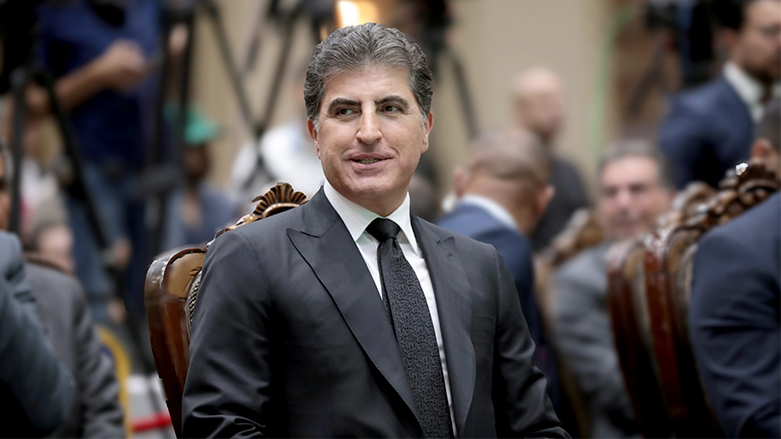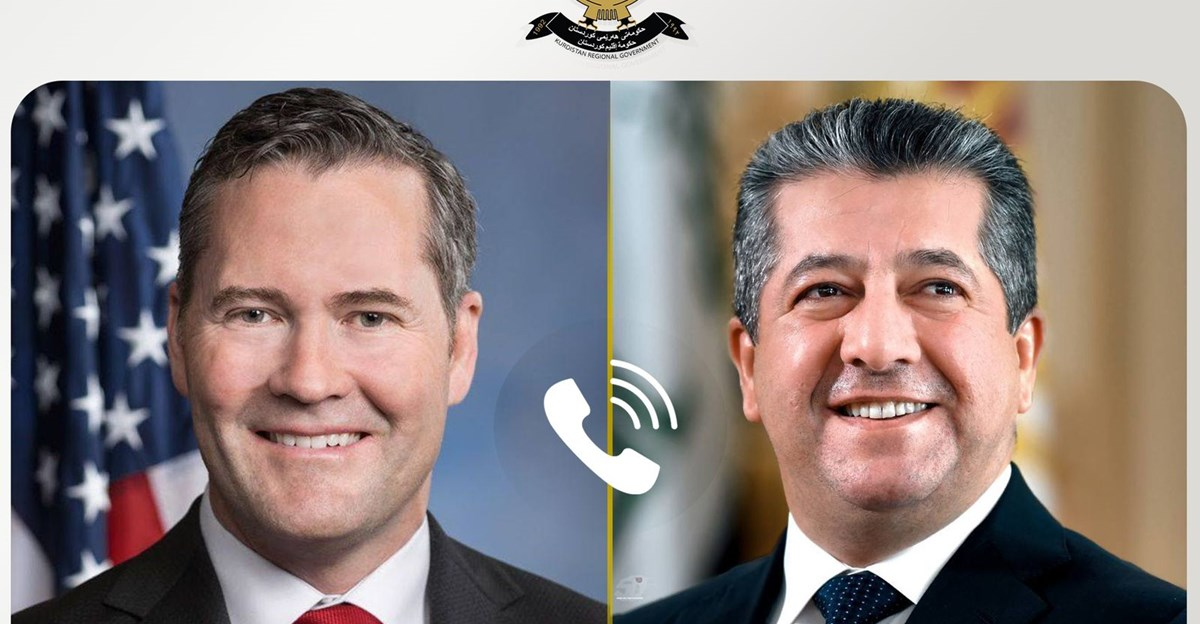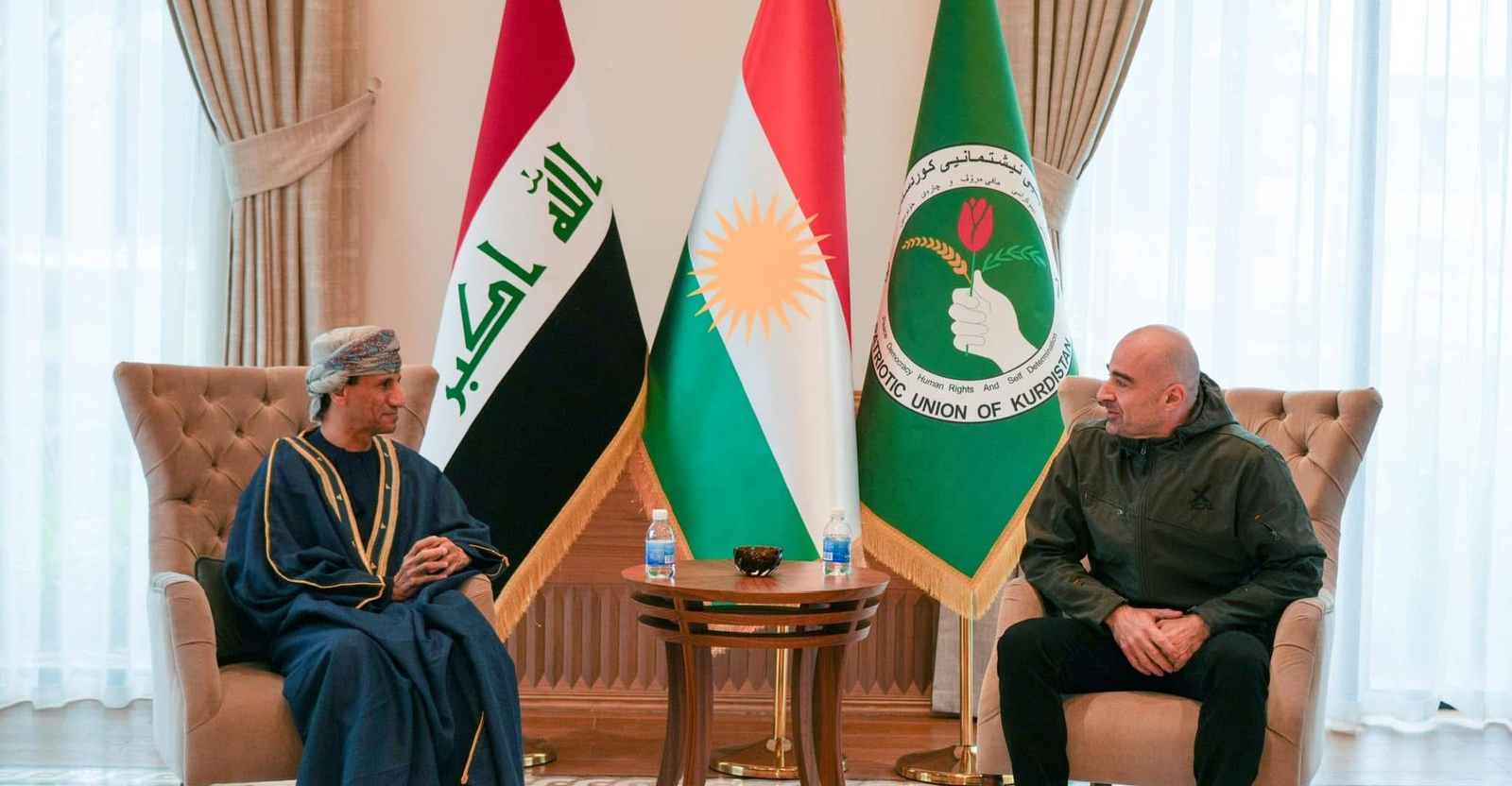Five years in: Nechirvan Barzani's leadership of the Kurdistan Region analyzed

Shafaq News/ Five years into Nechirvan Barzani's presidency of the Kurdistan Region, his calm and diplomatic approach has allowed him to navigate numerous political challenges and foster balanced relationships with both neighboring countries and various Iraqi political leaders, according to observers from Iraq and Arab states.
Who Is This Unique Leader
Kurdistan Region President Nechirvan Barzani, the grandson of legendary Mustafa Barzani, was born in the town of Barzan on September 21, 1966. He is the second President of the Kurdistan Region of Iraq since the establishment of the Kurdistan Presidency in 2005. He holds the position of deputy president of the Kurdistan Democratic Party.
His extensive political experience includes serving as Prime Minister in multiple cabinets, including the eighth cabinet (2014-2019), seventh cabinet (2012–2014), fifth cabinet (2006–2009), and fourth cabinet (1999-2006), as well as Deputy Prime Minister in the third cabinet (1996-1999).
Barzani pursued higher education in politics and international relations in Tehran, although he had to discontinue his studies for political and personal reasons. In recognition of his accomplishments, he received an honorary doctorate from Washington & Jefferson College in Pennsylvania, United States.
Fluent in Kurdish and Persian and proficient in Arabic and English, President Barzani is a seasoned leader with a deep understanding of regional dynamics and languages.
According to the Kurdish Presidency, President Barzani's vision is rooted in building a peaceful, progressive, modern, and tolerant society, guided by his personal values of pluralism in political life and peaceful coexistence among all religious and ethnic communities within the Region. Throughout his tenure as Prime Minister, he prioritized the development and stabilization of the political process through an inclusive and consensus-driven governance approach. His vision extends to fostering a democratic, peaceful, and politically stable homeland that contributes significantly to the peace, stability, and prosperity of Iraq and the wider Middle East.
Nechirvan Barzani was officially sworn in as President on June 10, 2019, following his election by the Kurdistan Regional Parliament on May 28, 2019.
Under his leadership, significant strides have been made in personal security, human rights, and political stability. Notably, over a dozen laws have been enacted to safeguard women's rights, promote press freedom, and combat domestic violence.
President Barzani has also championed religious and ethnic diversity, fostering an environment of mutual respect and coexistence.
Navigating Complex Political Landscapes
Significant political and diplomatic maneuvers have marked the past five years under Nechirvan Barzani's leadership.
Iraqi political analyst Dr. Adel Al-Ashram noted that Barzani's tenure has been crucial in addressing complex and contentious issues between the Kurdistan Regional Government and the federal government.
Al-Ashram highlighted to Shafaq News Agency Barzani's responsible and balanced leadership, which has helped the region succeed both internally and externally.
"Under Barzani's leadership, Kurdistan has navigated an unprecedented exceptional phase marked by rapid developments and ongoing events," said Al-Ashram. "Despite external influences and Iraq's involvement in regional issues, Barzani has managed to overcome many challenges, building balanced relationships and advancing development while maintaining the economy."
"Therefore, we can distinguish Nechirvan Barzani as one of Iraq's successful leaders who has made a substantial impact. His leadership has translated promises into reality, reflected in his program and vision. He has adeptly handled complex issues, including matters concerning displaced persons in the Kurdistan Region, oil and gas files, and overcoming obstacles that, for instance, have affected the salary process and administrative operations. His interactions with the federal government have been particularly effective, demonstrating his leadership in addressing even the most challenging situations." He added.
In addition, Al-Ashram considered Barzani's tenure has seen a marked improvement in international relations.
"The region, under his leadership, has developed robust ties with various foreign nations, especially those in the Arab world. This has contributed to a favorable perception and wide acceptance of Nechirvan Barzani's leadership, emphasizing mutual respect and common interests as the pillars of these relationships."
Building Balanced Relationships
Dr. Abbas Al-Jubouri, head of the Rafid Center for Media and Strategic Studies, stressed Barzani's efforts in fostering fruitful engagement with Iraqi political leaders and maintaining a balanced approach within Iraq's political landscape.
He noted that Barzani's continuous presence with political bloc leaders, both within and outside the government, has been a "commendable effort."
Al-Jubouri also highlighted Barzani's success in external relations, particularly through active participation in international forums. "Barzani has been an exemplary representative for the Kurdistan Region and Iraq, achieving significant gains through his rapprochement with the federal government, especially regarding oil and the Region's entitlements," he said.
Here's the translation and integration of the provided text into the report:
Commenting on Nechirvan Barzani's leadership, Al-Jubouri said, "he has shown great maturity in political work, which has enabled him to achieve significant accomplishments even with his rivals within the Region. The balance within the political forces in Kurdistan reflects on the rest of the components, as the region plays an important part in Iraq's political equation."
Focus on Development Amid Regional Challenges
Saudi strategic and security affairs researcher Dr. Fawaz Kasab Al-Anzi commented on the Kurdistan Region's cautious and moderate policies under Barzani's leadership despite regional changes and security threats, particularly from Iran.
Al-Anzi praised Barzani's "strategic vision and calm diplomacy, which have enabled him to build relationships with Middle Eastern leaders and political systems."
Additionally, Al-Anzi, speaking to Shafaq News Agency, pointed out, "Nechirvan Barzani comes from a political family and possesses the wisdom and calm political demeanor to deal with Iraqi leadership from a political perspective and wisdom. He has a strategic vision to form relationships with the leadership of countries and political systems in the Middle East region."
Al-Anzi added that "Iraq has a significant convergence with the Kingdom of Saudi Arabia, with the Kurdish President playing a role in calming situations and pursuing a strategy to minimize crises for all regions in the Middle East. Iraq is a key player and a fundamental file for Saudi Arabia, and any arrangement in the Iraqi house reflects on the Kurdistan Region. This is what the Kurdistan Region President is doing by looking towards the future and focusing on development without stopping at wars, through internal Iraqi political behavior and external behavior at the regional level."
Achieving Internal and External Stability
Jordanian political analyst and researcher at the Ummah Studies Center, Hazem Ayyad, observed that calm and balanced relations with Iran, Turkiye, and Arab states have marked Barzani's leadership.
"Despite oil-related issues, Barzani managed to prevent tensions, maintaining stable relations with neighboring countries and achieving internal concord in Iraq."
Moreover, Ayyad explained to Shafaq News Agency, "Despite the prominence of oil-related issues and discussions, whether concerning Iraq's internal affairs or its relations with Turkiye, tensions and instability were largely avoided. Kurdistan Region President Nechirvan Barzani successfully managed these relationships, preventing their deterioration, whether in relation to Iran or Turkiye."
He continued, "Nechirvan Barzani also succeeded in achieving the necessary consensus within Iraq, whether in the selection of the Iraqi Prime Minister or the Speaker of Parliament, and in overcoming obstacles related to the post-Halbousi era. This coincided with increased diplomatic activities in the Arab region, where he conducted several visits to regional countries, including Gulf states, and fostered a set of positive relationships."
Highlighting the challenges faced, Ayyad noted, "However, Nechirvan Barzani's tenure as the Kurdistan Region President was not without difficulties and tense circumstances, particularly concerning the oil file or tensions arising from attacks on U.S. forces' sites or the American presence in Iraq. These issues, although not new, were the result of a long period of tension and instability in Iraq. Nevertheless, Nechirvan Barzani achieved a significant level of stability in relations with Baghdad and regional countries during this period, which had a positive impact on the internal situation in the Kurdistan Region."



